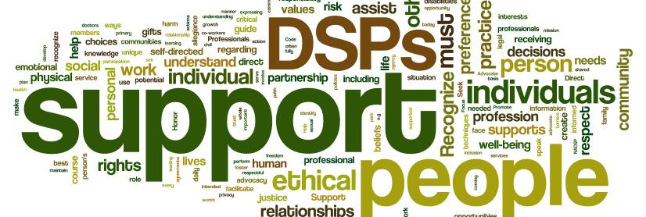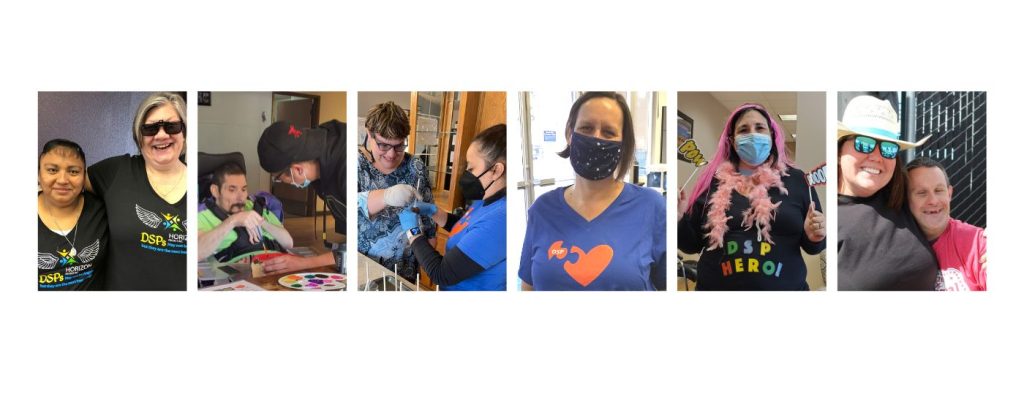The Importance of DSPs
Every day across the nation, Direct Support Professionals (DSPs) play a vital role in America’s workforce and economy by providing necessary supports and services to people with disabilities of all ages, including supports related to employment.
Individuals with intellectual and developmental disabilities (IDD) need people in their lives who provide them with assistance and instruction on completing tasks that most people take for granted. Professionals who provide this help and training are known as Direct Support Professionals (DSPs).
DSPs provide aid to people who suffer from a variety of disabilities and across a wide range of tasks, including transportation, personal care , cooking, and cleaning. The goal is to help people with IDD achieve a more comfortable level of independence.
The Role of a DSP
Historically, DSPs primarily served as caregivers for the people they supported. In the past few decades, however, the needs of those served began to change, and the roles of DSPs began to change as well. Today, the role of a DSP goes beyond caregiving and focuses more broadly on supporting people with disabilities to participate fully in their communities, live in integrated settings and seek competitive integrated employment.
Some of the roles of a DSP include:
- Supporting engagement with the community by providing:
- Support in less congregate and more individualized settings
- Job coaching
- Employment support
- Transportation
- Using creative thinking for accommodations to help people with disabilities be more independent.
- Providing caregiving and support with activities of daily living, including:
- Medication administration
- Mobility assistance
- Wound care
- Accessing food
- Working with the people they support to Advocate for rights and services, such as:
- Accessing resources and opportunities in the community
- Working with the employer to customize job duties
- Providing emotional support

Interesting information
- There are over 210,771 direct support professionals currently employed in the United States.
- 75.6% of all direct support professionals are women, while 24.4% are men.
- The average age of an employed direct support professional is 47 years old.
- The most common ethnicity of direct support professionals is White (61.6%), followed by Hispanic or Latino (15.1%), Black or African American (9.7%) and Asian (8.3%).
- Direct support professionals are most in-demand in New York, NY.
- The government industry is the highest-paying for direct support professionals.
- In 2021, women earned 97% of what men earned.
- 7% of all direct support professionals are LGBT.
- Direct support professionals are 72% more likely to work at private companies in comparison to government companies.
“The advent of direct support professionals has changed the way people with disabilities live. No longer are they dependent on their family member, doctor or other caregiver. They have a person to advocate for their needs, prevent abuse, and share their goals and aspirations.”*9
According to the US Bureau of Labor Statistics, the demand for DSPs is expected to grow by 40 percent by 2026.”
“According to a recent study by the Council on Quality and Leadership (CQL), DSPs are “crucial to support not only the health and safety but overall quality of life of people with disabilities”. This study also found that DSPs are essential “for the community inclusion and integration of people with disabilities”.”
Without DSPs the work can’t be done! DSP is the key for our excellent service.
Do you want to become a DSP? We provide trainnings and certifications for it. Contact us for more information and join our team of heroes today!

Sources:
https://www.dol.gov/agencies/odep/program-areas/individuals/DSP
https://www.zippia.com/direct-support-professional-jobs/demographics/
